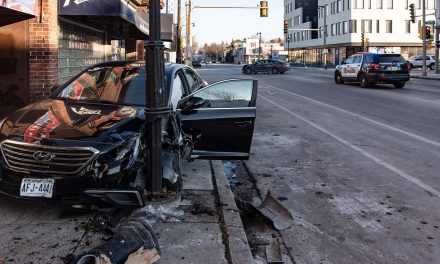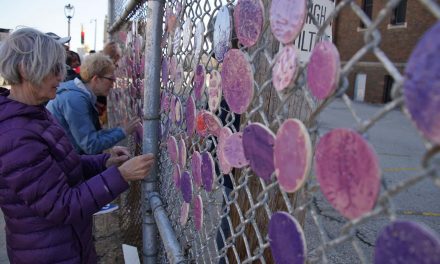
Escapism is defined as a “habitual diversion of the mind to purely imaginative activity or entertainment as an escape from reality or routine.”
When a billionaire reality TV star was elected President of the United States, much of America seemed surprised by the outcome. They should not have been, if they took an honest look at the values of our society. We are a nation where other pop culture superstars effect political policy.
These celebrities are often asked to testify in front of Congress as issue experts on everything from environmentalism to a genocidal crisis. Being famous for being famous has been a long running social obsession. The consumer-driven focus has resulted in an “Escapism Culture.”
While this has become painfully apparent in the aftermath of the 2016 election, the phenomenon has been understood and researched for a long time. It was not a dystopian society created from our leadership, but each of us. Living in an illusion has been easier than a factual world, where reality exists and can be difficult to cope with.
An example of the dynamics that create this environment can be all too subtle. The Green Bay Packers no longer play in Milwaukee, but the city makes plans around their play schedule. When families gather for time together, if is far easier to talk about the sports team instead of addressing issues of toxicity that may be tearing the family apart. The Packers are not an illusion, but the problem is that people create an imaginary and distracting connection through participation as fans with the team’s success.
Unless employed by the Packers, the average Milwaukee resident is not financially affected by the team’s win or loss. Yet there is an emotional attachment to the outcome of a game, and talking about it is an entertaining escape. It is much safer in the short term than bringing up the uncomfortable feelings of anger, sadness, guilt, or even grief that are a very real part of every day life.
It is this paradigm of escapism culture that has continued to plague our city for decades. Milwaukee is depicted on the nightly news as a crime-riddled, drug-infested, hyper-segregated, dangerous town that no one wants to live in. This exaggerated reality justifies both public and political policy, which in turn justify mindsets that ultimately do more harm than good. This narrative also continues the cycles of suffering by ignoring the true value and economic impact of Milwaukee.
That ultimately leads to paralysis and apathy towards the city and its residents, at least until something tragic happens. When the underlying unrest that has been historically ignored explodes, something chaotic and violent like the Sherman Park riots of August 2016 happens. However, since we are so ingrained with the escapism mindset, our empathy and actions have a time limit. This priority takes a backseat to the next entertaining story, or calamity that captures our attention, but largely ignores any motivation for personal action. The emotional response of pity as a release of cathartic entertainment becomes the result.
The problem in Milwaukee and other American cities is that as a community we are over-engaging in escapism. This allows many of the historical injustices to go largely under-addressed, and in some cases are even made worse. The habit leaves vulnerable populations suffering from an imbalanced power structure. At the same time it absolves the responsibilities of those already in power to help create a more equitable and sustainable way of life for the larger population.
We do not engage in escapism intentionally. It is human nature to actively engage in simplifying massive streams of information to help us quickly make sense of a very complex world. But just as with any other habit or coping mechanism, escapism can become an extreme avoidance technique that perpetuates dysfunction over time.
In Milwaukee, as a reflection of American thinking and values, pop culture consumes a significant amount of time within our lives. According to recent stats, individuals over the age of 18 spend nearly 5 hours a day watching television, 2 hours a day listening to the radio, 2 hours on a mobile device, and nearly an hour on the internet. This breaks down to about 10 hours a day spent consuming a significant amount of pop culture.
It should not come as a surprise why many parents know more about the daily lives of their favorite celebrities than they do about the daily lives of their own children.
This type of psychological escape can be beneficial for short term relief, but it typically has detrimental long-term effects. The problems of escapism culture are obvious, however the most damaging result is that it leads to a solution-less society which avoids, both intentionally and unintentionally, the historical trauma and the implications that continue to tear apart our social fabric today.
Fortunately, there is a growing understanding of this avoidance technique and of what we can do about it. There are rarely simple solutions for complex issues. But people can start by being mindful of the feelings behind their own escapist actions of avoidance. We need to ask, are we avoiding the root issues because of our feelings of angst, anger, sadness, hurt, guilt, grief, insecurity or even disregard?
Then be deliberate in actively engaging within ourselves, our relationships, and our communities by disengaging with distractions such as television, internet, video games, and other media sources. A popular term for this is called being in the moment.
Take time to be introspective and understand that bias exists in all of us. Because this bias exists inwardly, the world reflects information that easily confirms that bias rather than challenges it, often called confirmation bias. We must actively challenge our own silos of escapism.
And we can understand that our reality is shaped by a complex, non-linear reality that needs the creative participation of us all. The purpose of entertainment was originally to capture attention, and provide distraction from the everyday life. We now must recapture this attention and guard against the distorted and virtual world we have created. The effort begins with each of us, we must tune back into realty as an investment in a healthier future.















